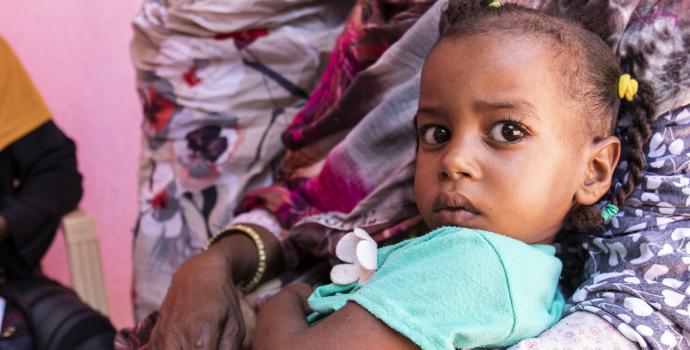Source: Save The Children
With only 6 weeks to go until the G20 Summit – and the joint Health and Finance Ministerial meeting just ahead of it, G20 leaders need to step up to the plate.
While G20 Health Ministers met on the 5-6th of September, reaffirming their commitment to global solidarity, equity, and a multilateral approach to effective governance and to promoting resilient health systems, among others, the lacklustre Health Declaration failed to commit governments to any concrete, time-bound plan or actions to deliver on this.
Empty promises of global solidarity while governments continue to prioritise their national responses means we are failing many populations around the world.
Since G20 Health Ministers met in May 2021 for the Global Health Summit, around 1 million people worldwide have died of Covid. During this same period, many G20 governments have reached high levels of vaccination coverage, while other parts of the world continue to lag significantly behind.
For example, in Canada, Italy, the UK and Germany, the percentage of the population that has received at least their first COVID-19 vaccine dose has reached 74%, 72%, 71% and 65%, respectively. Meanwhile, vaccination coverage in Africa is only at 5%. Many donor governments have failed to take adequate action to support equitable access to COVID-19 vaccines and if anything, their nationalistic actions of hoarding the limited global supply of vaccines has actually undermined this.
Farhia Muse Ali is a midwife in Somalia for over 10 years. She says: ”Somalia is not ready for a pandemic like this. We are already struggling to provide basic health services to mothers and children. The mortality rate is high in the country, but all I can do now is to pray hard that it will stop as soon as possible and before that help others as much as possible.”
Farhia’s demand for better and more equitable healthcare coverage is testimony that it is high time world leaders took the equitable access to COVID-19 vaccines more seriously and made it a reality.
Countries that have bought up the bulk of the global vaccine supply must immediately redistribute excess doses through COVAX, alongside funding to help accelerate the vaccination rollouts in developing countries. And it is essential that G20 governments support the COVID-19 Technology Access Pool (C-TAP) and the World Trade Organisation supports the waiver proposed by South Africa & India to help unleash needed vaccine supply.
G20 governments must also prioritise action to strengthen health systems, including increasing domestic and donor resources. This will be vital for rolling out COVID-19 vaccines, responding to future public health emergencies, and crucially, for improving health access for all. The importance of investing resilient health systems has never been so evident.
We cannot continue to miss these critical opportunities to change the trajectory of the pandemic and ensure we’re building forward better with more resilient, sustainable, and equitable systems that protect and promote health for all. The G20 must leave their legacy by moving beyond the rhetoric with ambitious and urgent action.



